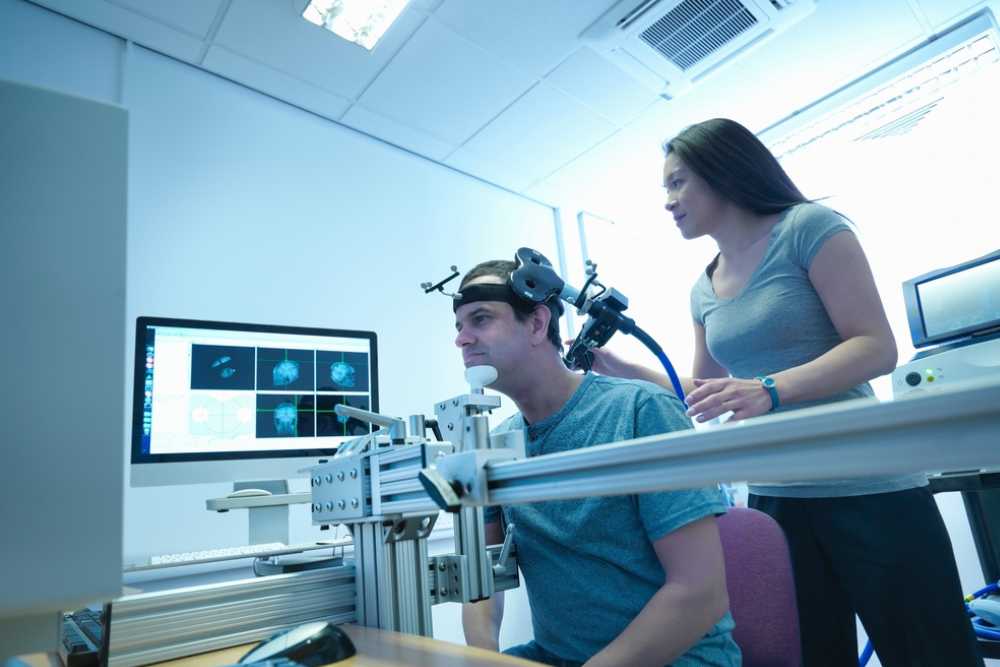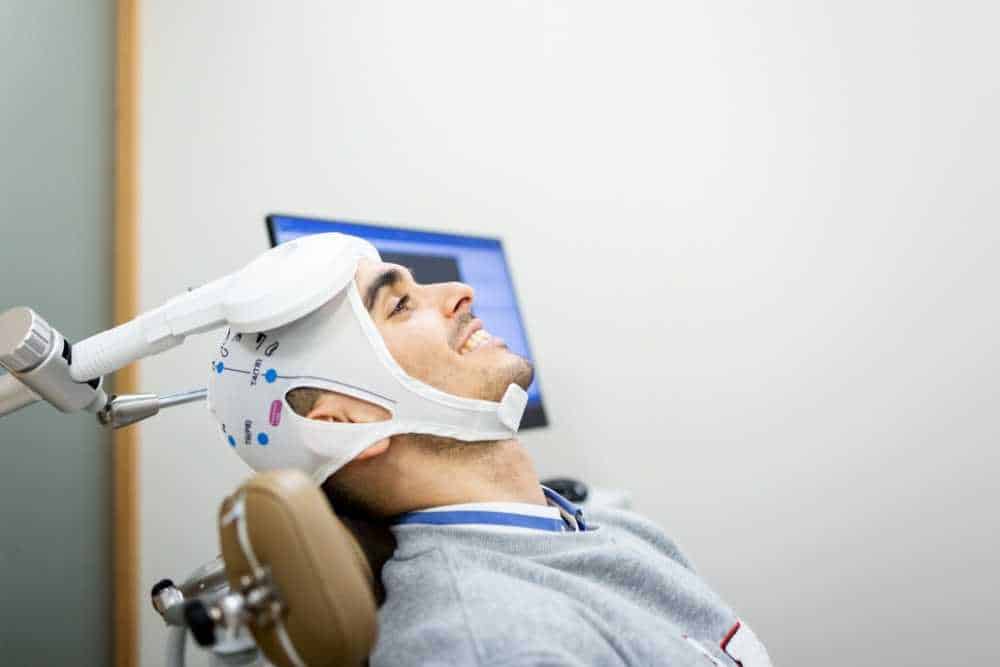The world of mental health treatment continues to evolve as new therapies and acceptance of the conditions push recovery forward for thousands of people impacted by various issues. One of the latest treatment options involves Transcranial Magnetic Stimulation (TMS), which provides a non-invasive alternative for patients who don’t respond to traditional therapies. Access to treatment for Transcranial Magnetic Stimulation in California is expanding as its effectiveness continues to show positive results.
The procedure is typically administered in a series of sessions over several weeks in an outpatient setting, with each session lasting about 20-40 minutes or as little as three minutes with newer protocols. As insurance coverage improves and more providers integrate TMS into services for mental health treatment in California, this technology represents a significant advancement in psychiatric care, offering hope to millions who previously had limited options when medication and psychotherapy proved insufficient.

What Is Transcranial Magnetic Stimulation (TMS)?
Transcranial Magnetic Stimulation (TMS) is a non-invasive brain stimulation procedure that uses magnetic fields to activate specific areas of the brain. During a TMS session, an electromagnetic coil is placed against the scalp, generating brief magnetic pulses that pass painlessly through the skull and induce small electrical currents in targeted brain regions. These currents modulate neuronal activity, potentially normalizing function in brain circuits involved in various neuropsychiatric conditions.
The FDA approved its use for treatment-resistant depression in 2008, and subsequent approvals have included applications for OCD, smoking cessation, anxious depression, and migraine pain. Most patients remain fully conscious during outpatient mental health treatment in California and can immediately resume normal activities afterwards, with common side effects limited to mild headache, scalp discomfort, or lightheadedness that typically resolves quickly.
Mental Health Treatment That Works
Call 949-625-0564What Mental Health Conditions Can TMS Treat Effectively?
Transcranial Magnetic Stimulation has shown substantial efficacy in treating several mental health conditions, with its strongest evidence base in depression, particularly treatment-resistant depression (TRD). For patients who haven’t responded adequately to antidepressant medications, TMS produces response rates of 50-60% and remission rates of 30-40% in clinical studies. It has since become a standard treatment option for patients who haven’t benefited from one or more antidepressant trials.
Beyond depression, TMS has demonstrated promising results for several other conditions. Obsessive-Compulsive Disorder (OCD) received FDA approval for TMS treatment in 2018, with studies showing significant symptom reduction when targeting the supplementary motor area or orbitofrontal cortex. Anxiety disorders, including generalized anxiety and panic disorder, show positive response rates of 40-50% in clinical trials. Post-Traumatic Stress Disorder (PTSD) treatment with TMS has demonstrated efficacy when targeting the dorsolateral prefrontal cortex, with some protocols showing 30-40% symptom reduction.
Emerging research supports TMS applications for substance use disorders, eating disorders, and certain neurodevelopmental conditions like ADHD. Though not all these applications have received regulatory approval, the expanding research base suggests TMS may eventually offer therapeutic options across a broader spectrum of mental health conditions.

Who Is a Good Candidate for TMS Therapy?
The ideal candidate for TMS therapy for mental health is typically an adult with treatment-resistant depression who hasn’t responded adequately to antidepressant medications. TMS offers a valuable alternative for patients who cannot tolerate antidepressant side effects such as weight gain, sexual dysfunction, or gastrointestinal issues.
It’s also appropriate for those seeking non-medication approaches, including patients who prefer to avoid the systemic effects of medications or women who are pregnant or breastfeeding and wish to avoid medication exposure.
Conversely, certain factors may disqualify someone from TMS treatment. The presence of metal implants in or near the head is a strict reason for avoiding treatment due to the powerful magnetic fields used. This includes cochlear implants, aneurysm clips, shrapnel, or certain types of neural stimulators.
Patients with a history of seizures or epilepsy require careful evaluation, as TMS carries a small risk of inducing seizures. Those with certain neurological conditions, acute substance use disorders, or severe psychosis may not be suitable candidates.
Insurance coverage often requires documentation of previous treatment failures, so patients should consult with their mental health provider and insurance company to determine eligibility based on their specific clinical history and insurance requirements.
What Are the Benefits of Choosing TMS Over Other Mental Health Treatments?
TMS offers a compelling, non-invasive alternative with minimal side effects compared to traditional treatments. Unlike medications that can impact the entire body, TMS delivers targeted stimulation directly to specific brain regions, avoiding side effects such as weight gain, sexual dysfunction, or gastrointestinal issues commonly associated with antidepressants.
This localized approach also differentiates TMS from electroconvulsive therapy (ECT), as TMS doesn’t require anaesthesia, causes memory issues, or induces seizures. Most patients experience only mild, temporary side effects like scalp discomfort or headache that typically resolve quickly after sessions.
The convenience and compatibility of TMS with daily life are more significant advantages. Treatment sessions are outpatient procedures, after which patients can immediately drive and resume normal activities, including work or school. This contrasts with medication adjustments that may require weeks to assess effectiveness or side effects, or more intensive interventions like partial hospitalization.
TMS can also be effectively combined with other treatments like psychotherapy or medication, offering a complementary approach rather than an either/or decision. For the approximately 30-40% of depression patients who don’t respond adequately to medications, TMS provides a valuable alternative with comparable or better efficacy rates, particularly for those who have failed multiple medication trials or cannot tolerate their side effects.
Learn More About How to Access Transcranial Magnetic Stimulation in California
Finding treatment involving Transcranial Magnetic Stimulation in California involves a critical mental health resource in a state with over 39 million residents, where approximately 4.3 million adults experience serious mental health distress annually. California’s progressive insurance legislation has established some of the nation’s strongest coverage requirements for evidence-based mental health treatments, including TMS for treatment-resistant depression.
Moment of Clarity operates a network of mental health outpatient centers to help improve TMS accessibility throughout California, which remains essential for addressing the state’s mental health crisis. By offering evidence-based alternatives beyond traditional medications and therapy, Moment of Clarity specializes in personalized care to ensure each patient has access to the type of therapy best suited for their needs.”
For more details on how to explore the benefits of undergoing Transcranial Magnetic Stimulation in California, contact Moment of Clarity at 949-625-0564 today.
External Sources
- Mayo Clinic – Transcranial magnetic stimulation (TMS)
- Harvard Health – Transcranial magnetic stimulation (TMS): Hope for stubborn depression
- National Library of Medicine – Theta-burst stimulation: a new form of TMS treatment for depression?




